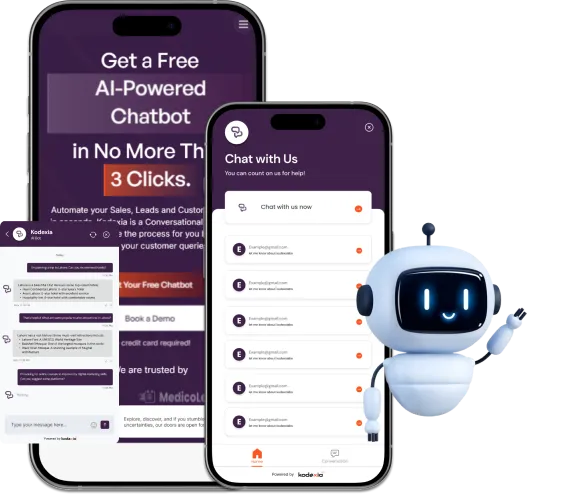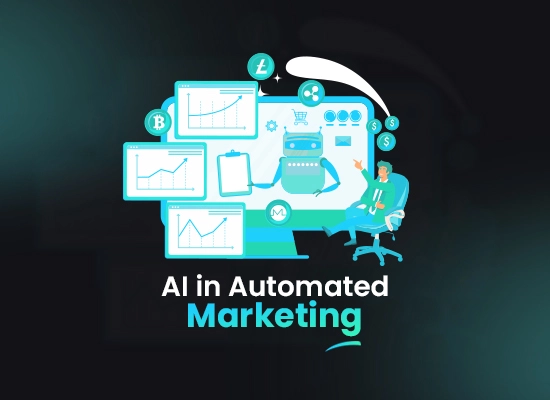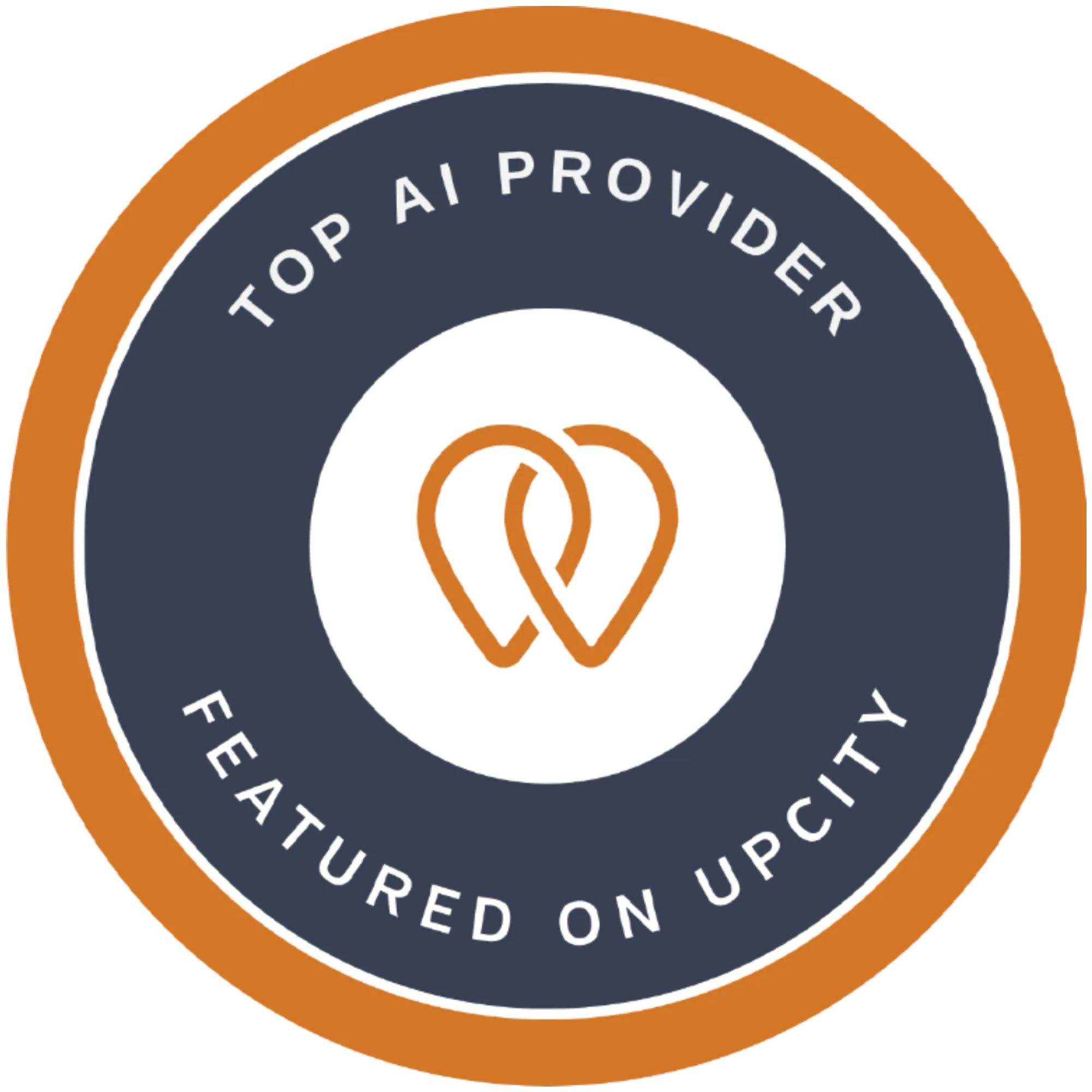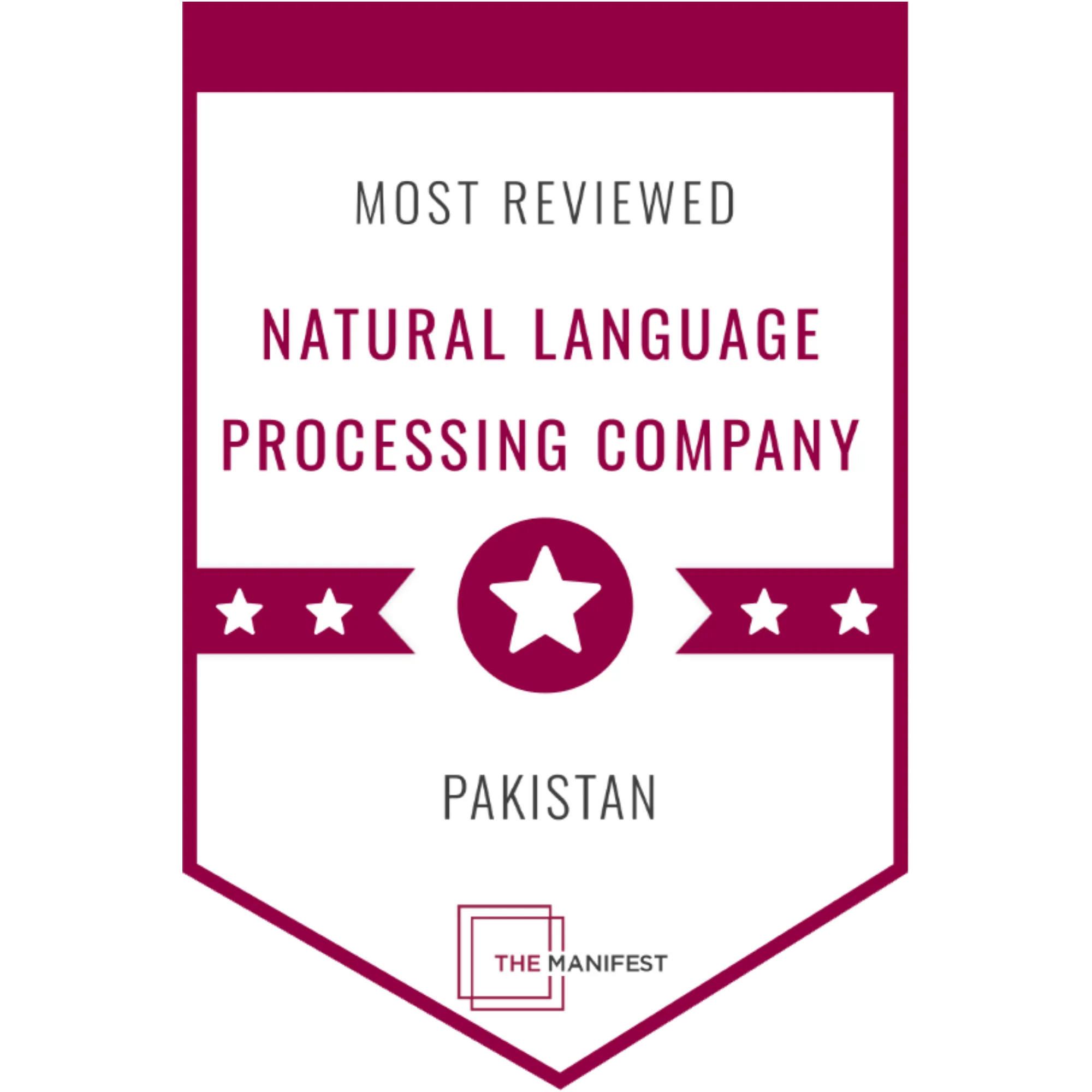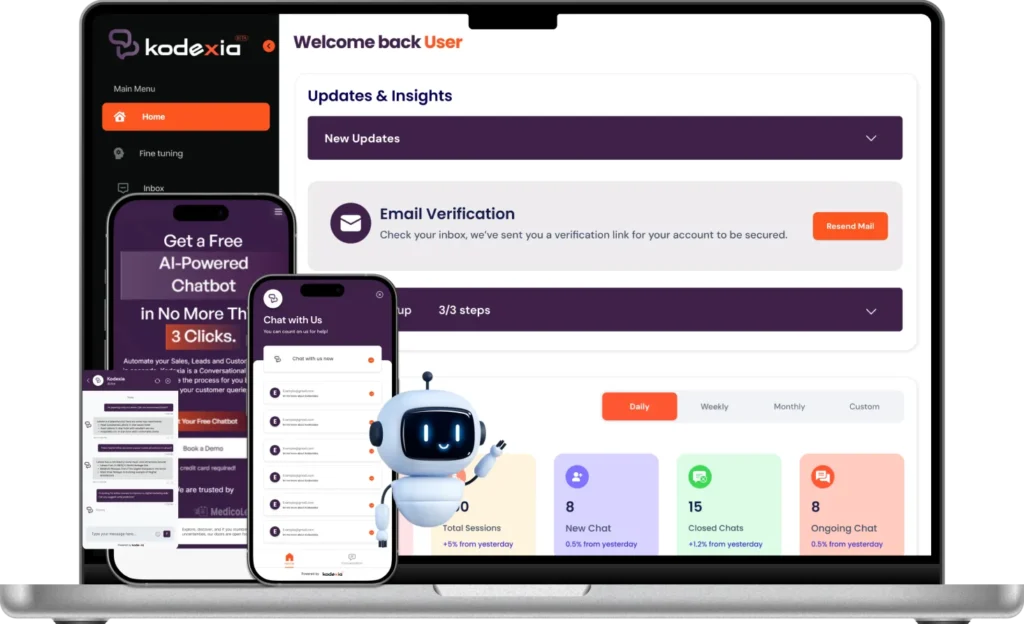AI in Email Marketing Optimisation: AI For Sales to Maximise Revenue
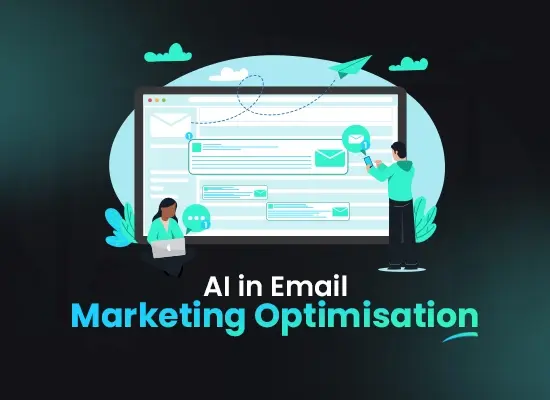
Contents
Email marketing is one of the proven strategies to communicate to your customers and convey your brand’s message with clarity. It is by far the most convenient marketing method to convert visitors into potential leads. While many fields are being digitised, Email marketing is no exception.
This blog delves into the current trends in email marketing, and how we can integrate AI in email marketing.
Understanding AI in Email Marketing:
AI for email marketing remains a crucial channel for businesses to connect with their audience and drive results, with 69% of marketers utilising it, as evaluated by the Content Marketing Institute. However, the rapid evolution of AI for email marketing is transforming traditional digital marketing strategies, including email marketing is revolutionising how email campaigns are conceptualised, executed, and optimised, leading to:
- Automated email response
- Enhanced engagement
- Ultimately, better results
- Increased personalisation

Why AI for Email Marketing?
- Artificial Intelligence (AI) can help you create more personalised and engaging email campaigns.
- AI can help you automate your email marketing efforts, saving you time and money.
- AI can help you track and measure the results of your email marketing campaigns, so you can see what’s working and what’s not.
Incorporating AI in Email Marketing:
- Use AI customer segmentation and create targeted email campaigns.
- Use AI to personalise your email content, including subject lines, body copy, and images.
- Use AI for automated email response and marketing tasks, such as sending emails, tracking results, and generating reports.
By incorporating AI into your email marketing campaigns, you can improve your results and stay ahead of the competition.
The Role of AI in Email Marketing:
AI plays a pivotal role in transforming various industries, including marketing. In email marketing, AI offers several benefits that enhance campaign effectiveness and customer engagement.
According to a report by Campaign Monitor, companies that employ AI for email marketing achieve an average open rate of 45.3% and a click-through rate of 18.3%. This showcases the effectiveness of AI in improving email engagement metrics and driving better campaign results.
Here are some key roles of AI in email marketing:

1. Personalisation:
AI for email marketing enables personalised email content tailored to individual preferences, demographics, and behaviour. This level of customisation improves open rates, click-through rates, and conversions.
2. Automation:
AI for email marketing offers automated email response and automates various other aspects of email marketing, such as sending automated email response, welcome emails, abandoned cart reminders, and follow-up messages. This automation saves time, ensures timely communication, and increases overall efficiency.
3. Content Optimisation:
AI for email marketing analyses large datasets to optimise email subject lines, body content, and calls-to-action. By testing different variations, AI helps identify the most effective content elements and improves engagement.
4. Predictive Analytics:
AI for email marketing analyses customer data to predict future behaviour, allowing marketers to send targeted and relevant emails. These predictive insights help in cross-selling, upselling, and customer retention efforts.
5. Email Deliverability:
AI can analyse email engagement metrics, such as open and click-through rates, to identify and resolve issues affecting deliverability. This ensures emails reach the intended recipients’ inboxes.
Personalisation with AI for Email Marketing:
Artificial intelligence (AI) is revolutionising email marketing by enabling businesses to personalise email content at scale. By leveraging data analysis and customer insights, AI can generate highly targeted and relevant email campaigns for an automated email response that resonates with each recipient.
AI algorithms analyse vast amounts of customer data, including purchase history, email engagement, demographics, and preferences. This data segments customers into groups with similar interests and behaviours. Based on these segments, AI generates personalised email content that is tailored to each group’s specific needs and preferences.
AI can optimise subject lines, body content, images, and videos to increase engagement and conversion rates. It can also predict the optimal time to send emails based on historical engagement patterns. Here’s how AI can be used to personalise email content:
1. Data Collection:
AI algorithms can collect and analyse vast amounts of customer data, including demographics, preferences, browsing behaviour, purchase history, and interaction patterns. This data serves as a foundation for personalisation.
2. Segmentation:
AI can segment customers into targeted groups based on specific criteria. For example, customers can be segmented based on their geographic location, purchase behaviour, or engagement level with previous email campaigns.
3. Dynamic Content Insertion:
AI content recommendation algorithms can dynamically insert personalised elements into emails based on customer attributes or behaviour. This includes using customers’ first names, recommending products based on browsing history, or displaying tailored offers based on past purchases.
4. Behavioural Triggers:
AI can identify specific actions or events triggered by customers and automatically respond with personalised emails. For instance, if a customer abandons their shopping cart, AI can send a personalised email reminder with a special discount to encourage them to complete the purchase.
5. Product Recommendations:
AI algorithms can analyse customer preferences and purchase history to generate relevant product recommendations. These recommendations can be included in email content, showcasing items that are likely to interest each customer individually.
6. Time Optimisation:
AI can analyse customer behaviour to determine the optimal time to send emails. By considering factors such as open rates, click-through rates, and time sone differences, AI can schedule emails to maximise engagement and increase the likelihood of conversion.
Personalised Automated Email Response Samples:
Examples of personalised email content based on data analysis:
- “Hi [Customer’s Name], based on your recent purchase of [Product A], we thought you might be interested in these complementary products.”
- “We noticed you abandoned your shopping cart. Come back and complete your purchase now to enjoy a 10% discount on the items you love.”
- “As a valued customer, we’re offering you an exclusive limited-time deal on products similar to your recent purchases. Don’t miss out!”
- “Since you’re a loyal customer, we wanted to give you a special sneak peek of our upcoming collection. Enjoy early access and choose your favourites before anyone else!”
- “Based on your browsing history, we’ve curated a selection of personalised recommendations just for you. Discover new products that perfectly match your interests.”
These examples demonstrate how AI can leverage data analysis to personalise email content, leading to more relevant and engaging messages that resonate with individual customers.
Customer Segmentation with AI in Email Marketing:
AI can play a significant role in segmenting email lists based on various criteria, enhancing the effectiveness of email marketing campaigns. Here’s how AI can be used for segmentation:

1. Data Analysis:
AI algorithms can analyse large volumes of customer data, including demographics, past purchase behaviour, website interactions, and engagement with previous email campaigns. It can identify patterns and similarities among customers to group them into segments automatically.
2. Customer behaviour:
AI can track and analyse customer behaviour, such as email opens, clicks, conversions, and browsing history. It helps to understand customer preferences, interests, and engagement levels. AI algorithms can then segment customers based on their engagement behaviour. This may also assist in analysing losing customers, i.e. customer churn prediction.
3. Demographics and Personal Information:
AI can process and analyse demographic information like age, gender, location, and other relevant personal details. This information is often used to create segments targeting specific demographics or geographic locations.
4. Purchase History and Preferences:
AI can analyse customers’ past purchase history, product preferences, and buying patterns. This enables the creation of segments catering to different product categories, price ranges, or specific interests.
5. Engagement Level:
AI can measure the level of customer engagement with previous email campaigns and segment subscribers accordingly. This helps to differentiate highly active and engaged subscribers from less engaged ones, allowing tailored communication strategies based on their behaviour.
6. Predictive Segmentation:
- Relevant Messaging
- Improved Engagement
- Increased Conversion Rates
- Cost-effectiveness
- Improved reviews with AI in customer service
Analytics with AI for Email Marketing:
Analytics with AI refers to the application of artificial intelligence techniques and algorithms in the process of data analysis and deriving insights. AI offers businesses the ability to leverage their data effectively, uncover hidden patterns, make informed decisions, and enhance overall performance. It enables businesses to gain valuable insights, optimise operations, improve customer experiences, and drive growth.
1. Data Processing and Cleaning:
AI can help automate the process of data preprocessing and cleaning. It can handle large volumes of data, identify missing values, outliers, and inconsistencies, and clean the data for further analysis.
2. Pattern Recognition and Anomaly Detection:
AI algorithms can analyse patterns in data and identify anomalies or outliers that may deviate from normal behaviour. This helps in detecting fraud, anomalies in customer behaviour, or identifying unusual trends in business data.
3. Predictive Analytics:
AI can be used to build predictive models that forecast future outcomes based on historical data. These models can analyse patterns, correlations, and trends to make predictions about customer behaviour, sales forecasts, demand forecasting, and more.
4. Natural Language Processing (NLP):
Natural Language Processing (NLP) techniques used in AI enable the analysis and understanding of unstructured data, such as text, emails, social media posts, customer reviews, and support tickets. Sentiment analysis and topic modelling are examples of NLP applications that offer insights into customer opinions and preferences.
5. Customer Segmentation:
AI-powered algorithms can segment customers based on various criteria, such as demographics, behaviour, interests, or preferences. This helps businesses understand their customer base and target specific segments with personalised marketing strategies.
6. Recommendation Systems:
AI-based recommendation systems analyse user behaviour and preferences to provide personalised recommendations for products, services, or content. Netflix’s movie recommendations or Amazon’s product suggestions are well-known examples of recommendation systems.
7. Real-time Analytics:
AI algorithms can process and analyse data in real time, allowing businesses to make quicker decisions and take immediate action. Real-time analytics can be used in fraud detection, dynamic pricing, supply chain management, and customer support to enhance operational efficiency and customer experiences.
8. Automated Reporting and Insights:
AI can automate the process of generating reports and extracting insights from data. It can identify key trends, correlations, and anomalies, and generate actionable insights for decision-making.
Predictive Modelling with AI in Email Marketing:
Predictive modelling with AI is a powerful technique that leverages artificial intelligence algorithms to analyse data and make predictions about future outcomes. By using historical data and patterns, predictive models can help businesses anticipate customer behaviour, forecast demand, predict risks, identify opportunities, and optimise decision-making processes. These models utilise machine learning algorithms to identify complex relationships and patterns in data, allowing businesses to make data-driven insights and take proactive actions.
Predictive modelling with AI has applications in various industries, including finance, healthcare, marketing, retail, and more. With the ability to process large volumes of data and generate accurate predictions, businesses can gain a competitive edge, improve operational efficiency, and enhance their overall performance.
Using AI for Sales:
AI for sales has become an invaluable tool for professionals, offering a wide range of applications that can enhance sales processes, improve customer engagement, and drive revenue growth. One notable application of AI for sales is lead scoring and qualification. By leveraging machine learning operations (MLOps), AI can analyse vast amounts of customer data to identify patterns, prioritise leads, and determine the likelihood of conversion. This helps sales teams focus their efforts on the most promising leads, resulting in increased efficiency and higher conversion rates.
AI-powered chatbots and virtual assistants have also revolutionised customer interactions in the sales process. These intelligent systems can provide an automated email response to customer queries, offer personalised recommendations, and even help with order processing. By automating routine tasks and providing round-the-clock support, AI chatbots enhance customer experiences, improve responsiveness, and free up sales representatives to focus on more strategic activities.
In addition, AI for sales can help with sales analytics by analysing customer preferences, purchase history, and online behaviour. This allows sales teams to gain deep insights into customer needs and preferences, enabling targeted marketing and personalised sales strategies. AI for sales can also detect upselling and cross-selling opportunities by recommending relevant products or services to customers, thereby boosting sales revenue.
Email Automation Tools:
Email automation tools are essential for streamlining and optimising email marketing campaigns. These tools automate various aspects of email communication, allowing businesses to save time, increase efficiency, and achieve better results.

1- MailChimp:
One of the most popular email automation tools is Mailchimp. It offers a comprehensive set of features, including email scheduling, audience segmentation, A/B testing, and personalised email templates. With Mailchimp, businesses can create targeted email campaigns, track engagement metrics, and automate follow-up emails based on customer behaviour.
2- HubSpot:
Another one on the list of popular email automation tools is HubSpot. It provides a powerful suite of marketing automation features, including email automation, lead nurturing, and customer segmentation. HubSpot allows businesses to create personalised workflows, send triggered emails based on user actions, and track the performance of email campaigns in real-time.
3- ActiveCampaign:
ActiveCampaign is another one of the highly regarded email automation tools. It offers advanced automation capabilities, including dynamic email content, personalised recommendations, and conditional workflows. ActiveCampaign allows businesses to automate multi-channel marketing campaigns, track customer interactions across different touchpoints, and leverage behavioural data to deliver targeted and relevant emails.
4- Klaviyo:
For e-commerce businesses, Klaviyo is a popular choice. It specialises in email automation for online stores and offers features such as cart abandonment emails, personalised product recommendations, and event-triggered workflows. Klaviyo helps businesses drive customer engagement, increase conversions, and maximise revenue through targeted email marketing automation.
5- Email Automation Tools for Content Creators:
Additionally, tools like ConvertKit and Drip cater to content creators, bloggers, and online entrepreneurs. These platforms provide intuitive email automation features, including segmentation, tagging, and drip campaigns. They enable businesses to nurture their audience, send personalised content, and automate email sequences to build strong relationships and drive conversions.
Ultimately, email automation tools empower businesses to create and manage effective, personalised, and scalable email marketing campaigns. These tools streamline repetitive tasks, leverage customer data for targeted messaging, and optimise engagement, ultimately resulting in improved customer relationships, higher conversion rates, and increased revenue.

Conclusion:
In conclusion, AI is revolutionising email marketing by enabling businesses to create more personalised, engaging, and effective campaigns. From automated email response and content optimisation to predictive analytics and customer segmentation, AI offers a wide range of benefits that can help businesses achieve their marketing goals.
By leveraging the power of AI, businesses can streamline their email marketing efforts, improve customer engagement, and drive better results. As AI continues to evolve, we can expect even more innovative and transformative applications in the field of email marketing, helping businesses stay ahead of the curve and succeed in the digital age.


